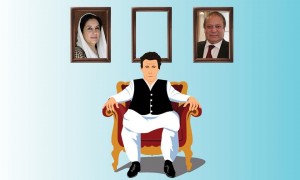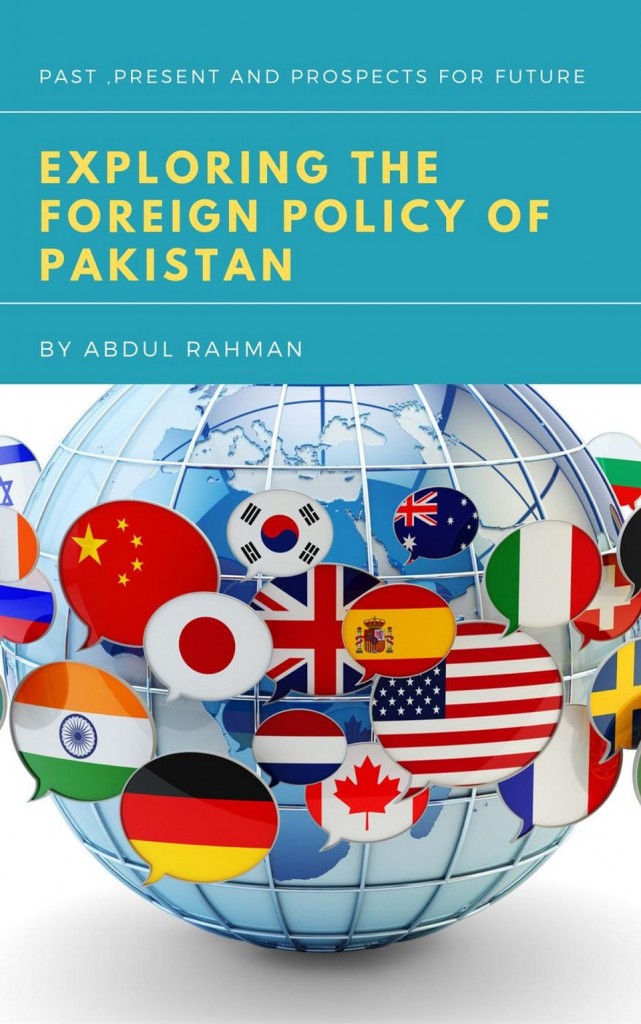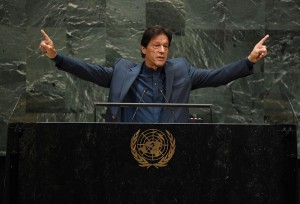Journey towards a Pragmatic Foreign Policy
Zain Ul Arifeen
Foreign policy of Pakistan has gone through a remarkable shift in the recent years; a subject where the country has had to suffer humiliation and unimaginable loss of being a formidable, resolute and determined state. Contrary to being an ideological state whose pillars were founded on the principles of unity, faith and discipline; the country still awaits making up for the loss it has borne due to gross handling of the policies regarding its conduct of relaitons with the world. Pakistan’s foreign relations have, in the past, represented a sorry figure during the the course of both democratic and military regimes.
Much of the international grievances that Pakistan faced actually date back to ‘inconsistent, wobbly and fictitious set of policies in the past, and their far-reaching impacts on the country’s reputation. Security, being one of the pivotal ambitions of especially Pakistan which is surrounded by a largely hostile neighbourhood, stands atop its foreign policy objectives, but with a new kind of mindset breaking through.
Many a great historian has shed light on the foreign policy objectives of Pakistan, and how they have been shaped by the interplay of internal and external factors. Alliance with the powers of the respective periods, conjugated with the underlying circumstances, account for Pakistan’s foreign policy outlook for most part. Naturally, given the strategic and geographic background the country is set in, enemies have come in harder from across the border, tensions have rushed ever since independence leading to devastating wars with India, and a pursuit of peace more or less accompanied by a gruelling war on terror on the part of big-power interests in the region, all such developments had a part to play and the elite involvement proved to be a menace in the past.
In explaining such challenges, it is important to keep in view the turning points in country’s external stature as well as volatility in the disputed Kashmir region, battle against the Soviet invasion in Afghanistan and the nurturing of the Taliban which proved to be a double-edged sword for Pakistan.
In August 2018, Imran Khan-led Pakistan Tehreek-e-Insaf (Movement for Justice) rose to power in an unprecedented win in a political system dominated by two partiers for several decades. It would not be unjust to mention that he inherited a storm within every institution, particularly the most vital domain of foreign policy where there was a huge deficit that one would think was hard to be undone. The systematic decay of the country’s international image in throes of a harsh political landscape, prompted even more by the ‘do-more’ mantra chanted by almost all American administrations, spearheaded a dreadful campaign against the country.
How the interests of the ruling elite propelled this notion to complicate, if not aggravate, Pakistan’s international challenges, is still shrouded in mystery. As to how a pacifist Prime Minister Imran Khan, who was wrongfully labelled as a friend of the Taliban, well comprehended the ongoing war on terror by advocating for a dialogue, and how this sense gained ground at the top, among civil-military connection in this government, helps realize the mistakes made in the pastm advertantly or inadvertantly.
Imran Khan government’s inclination is towards restoring the global image of Pakistan through the aspects of peace and security, economic outlook, untapped, vast potential of tourism, and the promotion of national interest. China-Pakistan Economic Corridor which materialized during the period of former PML-N government as a symbol of deep and lasting Pak-China friendshiphas now emtered its second phase of development where a transfer of technology and industry remains top priority of both governments to further strengthen the time-tested bilateral ties. As part of China’s growing influence, the CPEC project manifests Pakistan’s foreign policy shift in terms of choosing a trustworthy ally, as strong and formidable as the United States, having aligned interests for mutual cooperation.
China’s fostering of ties with Pakistan is often seen as a diplomatic threat to India and its patrons such as the United States and the Western economies, leaving a space for Pakistan to come up with a counter ally as China. Despite unrelenting false parpaganda, ceasefire violations at the LOC, and continuous peddling of terrorism in Pakistan, Pakistan’s rise andits ever-growing cordiality in relations with the world’s second largest economy, i.e. China, is worrisome for India, and it also speak volumes about an image in phase of revamping.
Comparable to what used to be a routine practice at the floor of UNGA, the PMIK’s address to this august gathering of world leaders last year—his first as chief executive of the country—inflicted huge embarrssment to India. A wide impression of the speech was that it was thorough, sincere and composed, from advertising Pakistan’s stance on grave issues like environmental conservation to the blatant thrashing of extremist Modi regime in India that has, in what can be called the most savage assault on the occupied Jammu and Kashmir, stripped the valley of its special status granted via articles 35A and 370 of the Indian constitution.
Later, when the US president Donald Trump reached India on his maiden visit, he kept it plain and simple during his speech. He lauded Pakistan for its efforts to curb terrorism and eradicate safe havens of terrorists. President Trump’s approval of Pakistan and his willingness to work in close cooperation with the country was an impactful event and an ‘obvious transition’ of America’s mindset from constant rhetoric of ‘do more’ to a peaceful relationship, an achievement regarded by most foreign policy experts as a success of Pakistan’s deft diplomacy.
The world leaders and the international media too came along in raising their voice for the oppressed Kashmiri people which was also a conspicuous change and manifested how Pakistan chose to play on the front foot, clearly diverging from its restrained, defensive policy against the arch-rival India. Following the aggressive policy of Pakistan’s civil-military leadership to exude a perception of peace and harmony coupled with actions, the world started being more serious and contemplative of Pakistan’s efforts in eradicating terrorism. There could not be a better instance to prove it than looking at the peace situation of the country which was once ravaged and ruined by war.
As of today, the world has set its eyes on the historic peace deal in Afghanistan, the epicentre of world’s longest war between the inexorable Taliban and the mighty United States. Trump administration is largely devoted to evacuating the US armed forces that have been fighting a lost cause as it has finally chosen the option of burying the hatchet. Of course, the negotiation and peace talks would never have been a reality without the military sharing a primary input owing to its role as a strategic player in the whole region, and surely not without a government emerging on a centre stage of execution.
More importantly, Pakistan has now modelled its foreign policy on a progressive, peace-oriented and intrepid footing, which is still principally influenced by the relationship with the US whose interests in Afghanistan have lately become a liability. Positively, with China ever closer to its side, the ‘do more’ mantra from America has started to gradually fade. Instead, having friendly relations with Pakistan is a desire expressed almost bluntly by the United States. The affiliation with China gives Pakistan a backing of a close friend in the time of need, contributing to strategic stability, internal security and economic prosperity, driving it away from the compelling requests for economic facilitation from the monetary organizations.
The author is a student of law at the University of Punjab. He can be reached at: cricketlover32@gmail.com
 Jahangir's World Times First Comprehensive Magazine for students/teachers of competitive exams and general readers as well.
Jahangir's World Times First Comprehensive Magazine for students/teachers of competitive exams and general readers as well.




